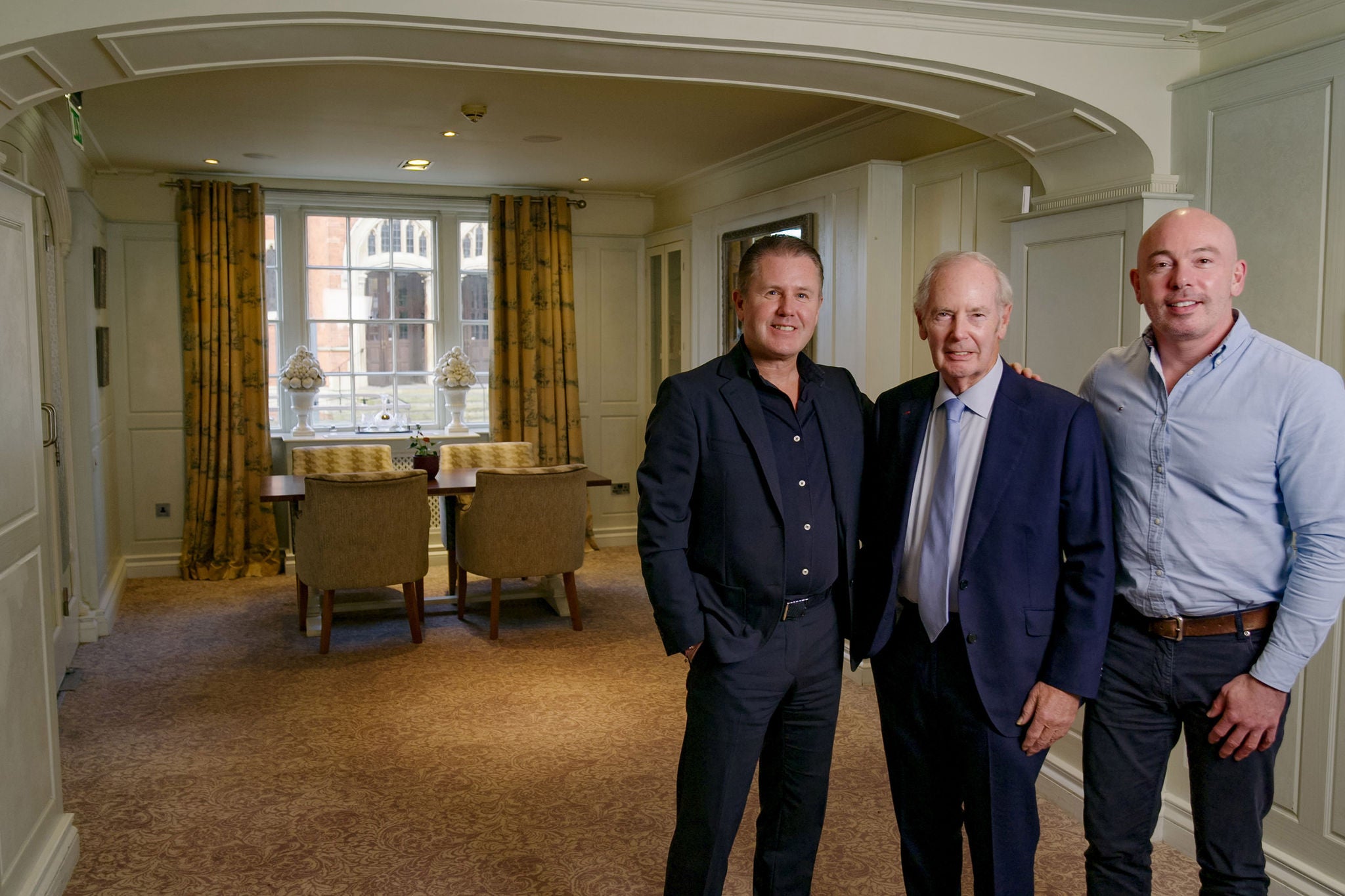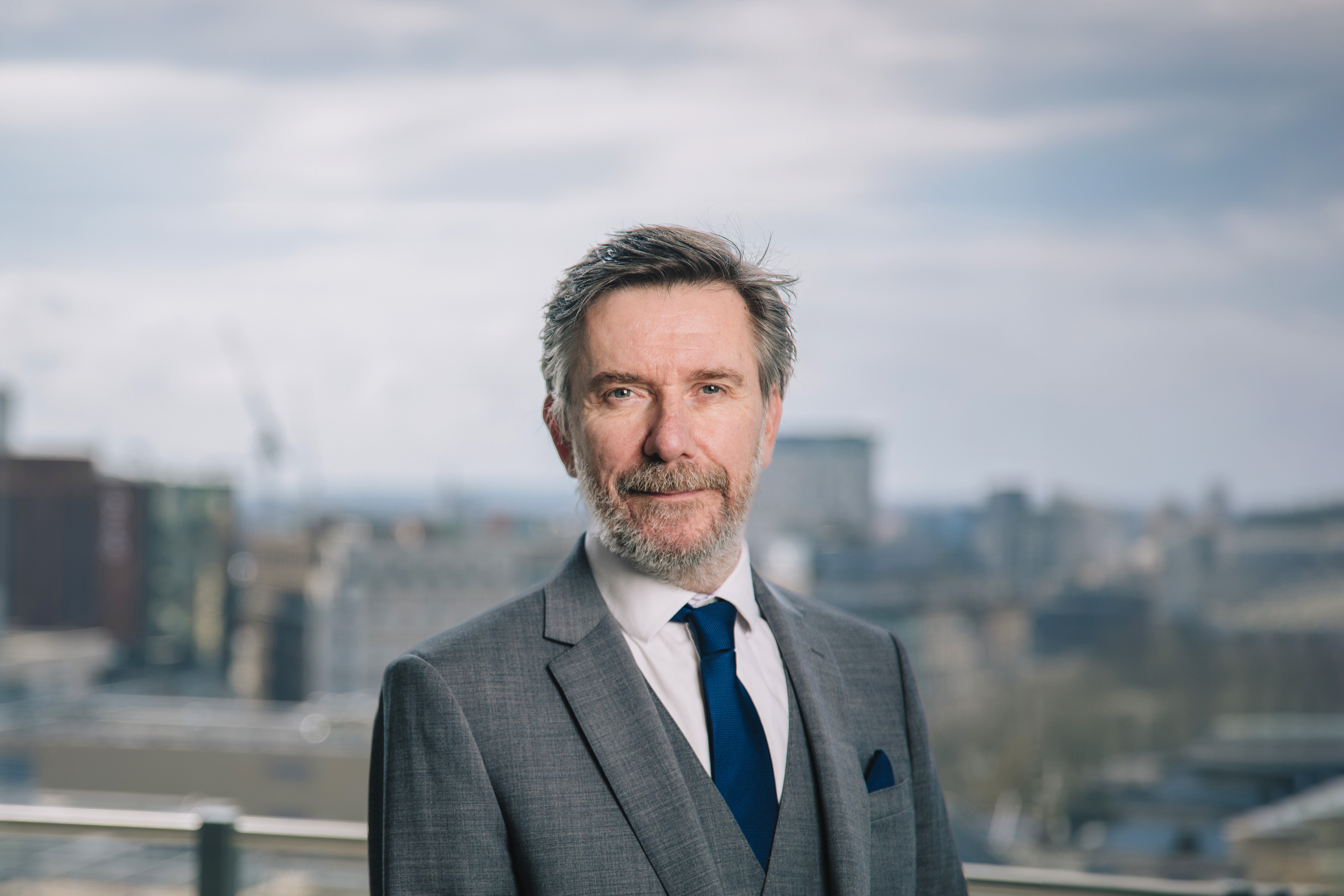The company has a long record of making strategic acquisitions. This has accelerated with its investments in dynamic, fast-growing tech businesses that are the game changers of tomorrow. Rigby Group has shown keen expertise in unlocking the potential of these organizations to deliver long-term sustainable growth.
The EY teams have supported the Rigby Group in helping improve their “buy and build” strategy. Steve describes the EY teams as one of Rigby Group’s key transactional advisors, since they’ve supported the Group through several complex transactions.
Chris says, “EY teams have assisted Rigby Group on several acquisitions and disposals as it pursues its long-term desire to be global leaders in technology. Where we have added value is in the discussion around transactions aligned to their strategy.”
He explains, “When Steve said he was thinking about exiting from one of their businesses, we put a team together to work with him to explore his thinking along with the goal he wanted to achieve. We concluded that it wasn't the right solution. Instead, we supported them on a separate disposal that achieved what the Group wanted to do. So, it's the idea of thinking wider than just the question you're asked.”
Additionally, Chris has helped to establish share incentive schemes for Rigby Group, to incentivize senior leaders and family members to support the growth and exit of businesses as part of the overall growth strategy.
“Business is lonely at times and in a family business you sometimes don’t want to discuss all matters with the family,” Steve explains. “Sometimes you want to form your ideas first and have an intelligent proposition rather than verbalizing unformed thoughts. So, I have a very small group of people I turn to for advice – and Chris is one of those people. I want experts around me to ensure that we achieve the best result.”
When Rigby Group acquired Nuvias, an IT distribution business, in 2015, it embarked on further acquisitions to build its cloud and cybersecurity capabilities and expand its distribution internationally. EY tax teams worked with the company to do the structuring for the Nuvias sale, which included a complex carve out of one of the businesses and structuring the disposal of Nuvias, and subsequent reinvestment into the purchasing group. As a result of the transaction, Rigby Group achieved its first exit worth more than £100m while also taking advantage of the opportunity to reinvest.
“We tend to seek professional advice on many of the key topics as we start to examine strategy,” says Steve. “EY teams have been at the heart of that, with some key individuals that focus around transactions and taxation. EY teams have helped us through some complex decisions around not only disposing businesses, but starting up businesses, long-term remuneration for key employees, and general tax planning for what has become quite a complicated family business, including the affairs that sit above the family business into the areas of trust. So, EY teams have become very much a trusted advisor to us during this time. “
Steve’s advice for other family enterprises looking to get the best out of their professional advisors is to “right-size the advice” – in other words, go with an advisor that has a scale appropriate to the size of the family enterprise and the extent of its vision. Also, he recommends finding advisors that you can build a strong personal relationship with, as well as taking multiple pieces of advice in complex situations.
Family ties
Rigby Group is a rare example of a very large, privately held technology company that has stayed in business for a long time. So, what’s the secret to its success?
Sir Peter has been a force in the business ever since it started, and his daily presence continues to motivate and inspire to this day. “He gives time to people,” says James. “And people see that. He’ll talk to the teams in the warehouse, and on the sales floor, just as much as he’ll talk to a government minister. He’s still very involved.”
Steve describes his father as a “big inspiration”, but a “tough taskmaster”. “I’m really, really proud of what he achieved,” he says. “There were other entrepreneurs of his generation who were also doing well, yet he outpaced them with his work. While they were enjoying the trappings of life that came from having a very successful business, my father kept his head down and pedaled very, very hard. That’s a significant factor in where we are today as an organization.”
As for Sir Peter himself, he describes his sons as the best thing ever to happen to him and is proud of what they have achieved. “I set high standards and I expect my sons to step up to those standards,” he says. “And they absolutely do.”
According to James, much of Rigby Group’s success can be attributed to its people, culture and family-led operating structure. “As a family, we have created a culture of hard work, entrepreneurialism, experimentation, accountability and performance,” he says. “And our 9,000 colleagues are essential to our success. Also, as a private company, we’ve been able to take long-term, thought-through decisions, stay in control of our own destiny, and preserve capital for the future development of the business.”
Through its core operating business, SCC, as well as its investments in dynamic, fast-growing tech businesses, Rigby Group has also been very successful at anticipating and responding to disruptive market trends, including cloud technology, cyber resilience, and data analytics. Today, the Rigby Group and EY teams are continuing to work together to make sure the Rigby Group is strategically placed to take advantage of the huge explosion of interest in AI. “AI is widely billed as the most disruptive technology for decades and we absolutely subscribe to that prediction,” says James. “For our group, it means a huge opportunity. Companies will need lots of help to work out how to deploy and consume AI technology.”
Between them, Steve and James have six children of their own, so their priority is to ensure that Rigby Group continues to flourish as a family-owned business. With their father, they have established a family council that brings together the three generations to discuss what that future might look like. The focus is on family cohesion, happiness, respect for what the family has built, and respect for the communities where its business operates.






